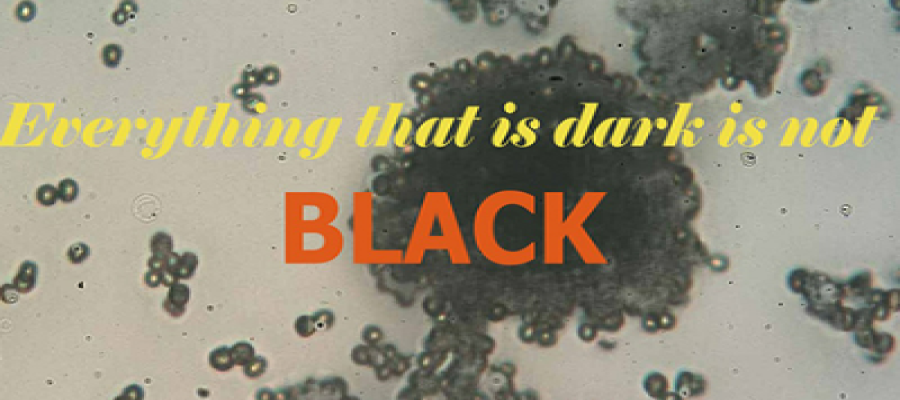The Difference Between a Medical Writer and a Scientific Writer
In
the realm of scientific and medical communication, the roles of medical writers
and scientific writers are often conflated, with some assuming they are
interchangeable positions. However, each of these professions carries distinct
responsibilities, skills, and purposes. This article will delve into the
nuances that set medical and scientific writers apart, shedding light on their unique contributions to medicine, science, and
healthcare.
Medical
Writers: Bridging the Gap Between Science and the Public
Medical
writers play a crucial role in translating complex medical and scientific
information into clear, accessible content for a broad audience. They serve as
intermediaries between healthcare professionals, researchers, and the general
public. Key responsibilities of medical writers include:
»
Clinical Trial Documents:
They are tasked with preparing documents such as clinical trial protocols,
informed consent forms, and investigator brochures. These documents are
essential for ensuring clinical trials' ethical and regulatory compliance.
»
Patient Education Materials:
They develop patient-focused content, which includes pamphlets, brochures, and
online resources. This content helps patients better understand their medical
conditions, treatment options, and healthcare choices.
»
Regulatory Submissions:
They collaborate with pharmaceutical companies to prepare regulatory
submissions to health authorities, such as the FDA. Accuracy and precision in
these documents are paramount to gaining approval for new drugs and therapies.
»
Scientific Manuscripts:
They assist researchers in preparing manuscripts for submission to medical
journals, ensuring the research findings are presented clearly and
coherently.
»
Continuing Medical Education (CME):
They create educational materials for healthcare professionals, enabling them
to stay updated with the latest advancements in medicine and patient care.
Scientific
Writers: Communicating Complex Science
Scientific
writers, on the other hand, focus on the broader spectrum of scientific
communication. Their primary role is to convey complex scientific concepts to
other scientists, researchers, and experts within their respective fields. Here
are some of the key responsibilities of scientific writers:
»
Research Articles:
They craft research articles, review papers, and scientific reports that are
submitted to peer-reviewed journals. These articles contribute to the
dissemination of scientific knowledge and the advancement of research.
»
Grants and Proposals:
They assist researchers and scientists in writing grant proposals, helping
secure funding for their projects. Effective proposal writing is essential for
gaining financial support.
»
Technical Manuals:
They create technical manuals and documentation for laboratory equipment,
software, and experimental procedures. This ensures that research protocols are
accurately followed.
»
Conference Materials:
They develop abstracts, posters, and presentations for scientific conferences,
enabling researchers to share their findings with their peers.
»
Publications for Niche Audiences:
They may produce content for specialized audiences, such as research
institutions, scientific societies, or academic institutions.
Key
Differences
While
both medical writers and scientific writers deal with complex information,
there are notable distinctions between their roles:
· Audience
o
The primary audience for medical writers
includes patients, healthcare professionals, regulatory agencies, and the
general public. They aim to translate complex medical and scientific
information into easily comprehensible language for these non-expert audiences.
Their content often focuses on patient education, clinical trial information,
and regulatory compliance.
o
Scientific writers primarily communicate
with experts and professionals within their respective scientific fields. Their
target audience comprises researchers, scientists, academics, and specialists
who are well-versed in the subject matter. The content they produce is
characterized by its technical depth and scientific rigor.
·
Content Complexity
o
Medical writers are skilled in simplifying
and summarizing complex medical and scientific concepts. They break down
technical jargon and present information in a clear, concise, and non-technical
manner. The goal is to make healthcare information accessible and easily
understood by patients and healthcare providers.
o
Scientific writers deal with intricate
scientific content, including in-depth research findings, methodology, and data
analysis. They are responsible for producing highly specialized content that
meets the standards of peer-reviewed journals and other scientific
publications. Their work requires a deep understanding of the subject matter
and often involves complex data interpretation.
· Regulatory
Focus
o
Medical writers frequently work within the
framework of healthcare regulations and guidelines. They ensure that documents
such as clinical trial protocols, informed consent forms, and regulatory
submissions comply with ethical and legal standards. Ensuring accuracy and
adherence to regulatory requirements is a crucial aspect of their work.
o
While scientific writers are concerned
with accuracy, their focus is less on regulatory compliance and more on
contributing to the body of scientific knowledge. They emphasize the proper
presentation of research findings and adherence to the conventions of
scientific publishing, including citation and referencing.
·
Purpose
o
The primary purpose of medical writing is
to inform, educate, and empower patients and healthcare professionals. They aim
to improve patient outcomes by providing clear, reliable information about
medical conditions, treatments, and healthcare choices.
o
Scientific writing serves the purpose of
advancing scientific knowledge. It contributes to the academic and research
community by disseminating research findings, encouraging collaboration, and
fostering innovation. The goal is to expand the understanding of a particular
scientific discipline.
·
Collaboration
o
Medical writers often collaborate with
healthcare professionals, pharmaceutical companies, clinical researchers, and
regulatory experts. They work closely with subject matter experts to ensure the
accuracy and relevance of their content.
o
Scientific writers collaborate with
researchers, scientists, and academic institutions. They assist in preparing
research manuscripts, grant proposals, and technical documentation. Their
collaboration is focused on advancing scientific research and publication.
·
Skill Set
o
Key skills for medical writers include
medical knowledge, communication skills, regulatory understanding, and the
ability to simplify complex information. They must also excel in
patient-centered communication.
o
Scientific writers require a strong
background in the specific scientific discipline they are writing about. They
need skills in scientific research, data analysis, technical writing, and a
deep understanding of research methodologies.
The
Overlap and Collaboration
It
is important to note that there is a degree of overlap between medical writers
and scientific writers, especially in fields like medical journalism and health
communication. In many cases, professionals in these roles collaborate to
bridge the gap between scientific research and the broader public.
Collaboration between these two roles strengthens the communication of
scientific and medical information, ensuring that it effectively reaches both expert and lay audiences.
For
example, a medical writer may collaborate with a scientist to translate their
research findings into patient-friendly language for a press release or health
website. Conversely, a scientific writer may team up with a medical writer to
produce educational materials for healthcare professionals based on the latest
research developments.
Conclusion
In
the world of healthcare, medicine, and science, effective communication is
paramount. Medical and scientific writers play essential roles in
facilitating this communication, but their responsibilities and target
audiences differ significantly. Recognizing and appreciating the distinctions
between these two professions highlights the value they bring to the fields of
medicine and science and underscores the importance of clear, accurate, and
accessible communication in advancing healthcare and scientific discovery.



